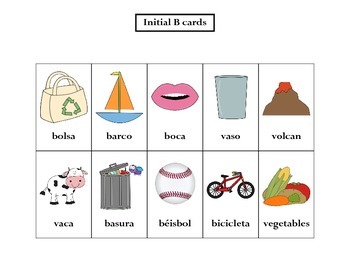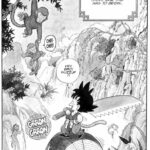Words That Start With B In Spanish
1. Barco (boat)
2. Burro (donkey)
3. Bebé (baby)
4. Borrador (eraser)
5. Banco (bank)
6. Bicicleta (bicycle)
7. Botella (bottle)
8. Biblia (Bible)
9. Bolsa (bag)
10. Bola (ball)
11. Bombero (firefighter)
12. Balcón (balcony)
13. Bonito (pretty)
14. Baile (dance)
15. Baño (bathroom)
16. Bufanda (scarf)
17. Bastón (cane)
18. Bombilla (lightbulb)
19. Bolígrafo (pen)
20. Bandera (flag)
21. Brújula (compass)
22. Barrio (neighborhood)
23. Brócoli (broccoli)
24. Bisabuela (great-grandmother)
25. Búho (owl)
26. Béisbol (baseball)
27. Bisnieto/a (great-grandchild)
28. Billete (bill)
29. Bicicletas (bicycles)
30. Bosque (forest)
More About
Welcome to a fascinating journey through the Spanish language! Today, we will be exploring a unique collection of words that all have one thing in common: they start with the letter “B”. From beautiful, meaningful phrases to quirky, tongue-twisting expressions, this captivating collection is sure to pique your curiosity and expand your vocabulary.
In the vast realm of Spanish vocabulary, words that begin with “B” offer an enticing combination of creativity, diversity, and cultural richness. As we delve into this letter, we will encounter words that encapsulate the essence of the Spanish-speaking world, ranging from everyday items to abstract concepts, all with their own enchanting backstories.
Let’s begin our adventure with “Buenos días,” a phrase that carries the warmth and charm of Spanish greetings. Translated as “good morning,” this salutation transcends its literal meaning, representing a cultural custom of acknowledging others with kindness and respect at the start of each day. Whether you’re strolling through the vibrant streets of Mexico, exploring the historical landmarks of Spain, or savoring the flavors of Latin America, “Buenos días” is a universal phrase that unites people through its shared sentiment.
As we move forward, we encounter a captivating word, “Bailar.” Dancing in Spanish culture is more than just a mere movement of the body; it is a way of sharing joy, expressing emotions, and connecting with others. Whether it’s the energetic rhythms of salsa, the sensual elegance of tango, or the infectious beats of flamenco, the word “Bailar” evokes a sense of vitality, unleashing the spirit of celebration that is deeply ingrained in the Spanish-speaking world.
Continuing our linguistic journey, we come across the word “Besos,” which means “kisses.” This simple, yet powerful, word embraces the warmth and affection shown in Spanish-speaking communities, where physical displays of love and friendship are cherished. “Besos” remind us of the importance of interpersonal connections, encouraging us to express love and appreciation for those who are dear to us.
Now, let’s venture into the realm of nature with the word “Bosque.” With its mystical allure and serene beauty, “Bosque” means “forest” in Spanish and conjures images of majestic trees, winding trails, and untamed wildlife. Exploring a “Bosque” offers a peaceful escape from the hustle and bustle of everyday life, inviting us to connect with nature and recharge our spirits.
As we roam through the colorful tapestry of Spanish words starting with “B,” we will stumble upon playful expressions like “Bolero.” Originating from Latin America, “Bolero” is not just a type of rhythmic music; it is an embodiment of romance, evoking sentiments of love, heartache, and longing. Whether you are swaying to the soothing melodies or simply immersing yourself in the soulful lyrics, “Bolero” takes you on an emotional voyage, showcasing the depth and passion inherent in Spanish-speaking cultures.
Through this linguistic voyage, we have only just scratched the surface of the vast array of words that begin with “B” in Spanish. From cultural customs to expressions of love, from nature’s wonders to the captivating realm of music, each of these words brings its unique flavor to the table, leaving an indelible mark on the Spanish language.
Join us in our forthcoming articles as we dive further into this captivating realm of Spanish words to unravel their stories, explore their nuances, and expand our understanding of the language. Until then, embrace these starting points and let the magic of words that begin with “B” carry you through the enchanting world of the Spanish language.
FAQs:
Frequently Asked Questions (FAQs) about Spanish words starting with “B”:
1. ¿Qué significa “bicicleta”? (What does “bicicleta” mean?)
– “Bicicleta” significa un vehículo de dos ruedas que se mueve por la fuerza ejercida al pedalear.
2. ¿Cuál es el plural de “bebé”? (What is the plural of “bebé”?)
– El plural de “bebé” es “bebés”.
3. ¿Qué es un “banano” en español? (What is a “banano” in Spanish?)
– En español, un “banano” se refiere a una fruta que en otros lugares puede llamarse plátano.
4. ¿Cuál es la traducción de “beautiful”? (What is the translation of “beautiful”?)
– La traducción de “beautiful” al español es “hermoso/a”.
5. ¿Cuál es el género de la palabra “bolígrafo”? (What is the gender of the word “bolígrafo”?)
– “Bolígrafo” es un sustantivo masculino. Se usa “el bolígrafo” cuando se refiere a un bolígrafo en general.
6. ¿Qué significa “buenas tardes”? (What does “buenas tardes” mean?)
– “Buenas tardes” es una expresión utilizada para saludar en la tarde, equivalente a “good afternoon” en inglés.
7. ¿Cuál es la traducción de “bravo”? (What is the translation of “bravo”?)
– La traducción de “bravo” al inglés es “brave” o “fierce”, y a veces se utiliza también como un grito de felicitación.
8. ¿Qué significa “búsqueda” en español? (What does “búsqueda” mean in Spanish?)
– “Búsqueda” se refiere a la acción de buscar o investigar algo, similar al término “search” en inglés.
9. ¿Cuál es el antónimo de “bonito”? (What is the antonym of “bonito”?)
– El antónimo de “bonito” es “feo”, que significa “ugly” en inglés.
10. ¿Qué palabras en español empiezan con “be-“? (Which words in Spanish start with “be-“?)
– Algunos ejemplos de palabras que comienzan con “be-” en español son “bebida” (drink), “beso” (kiss), y “belleza” (beauty).















